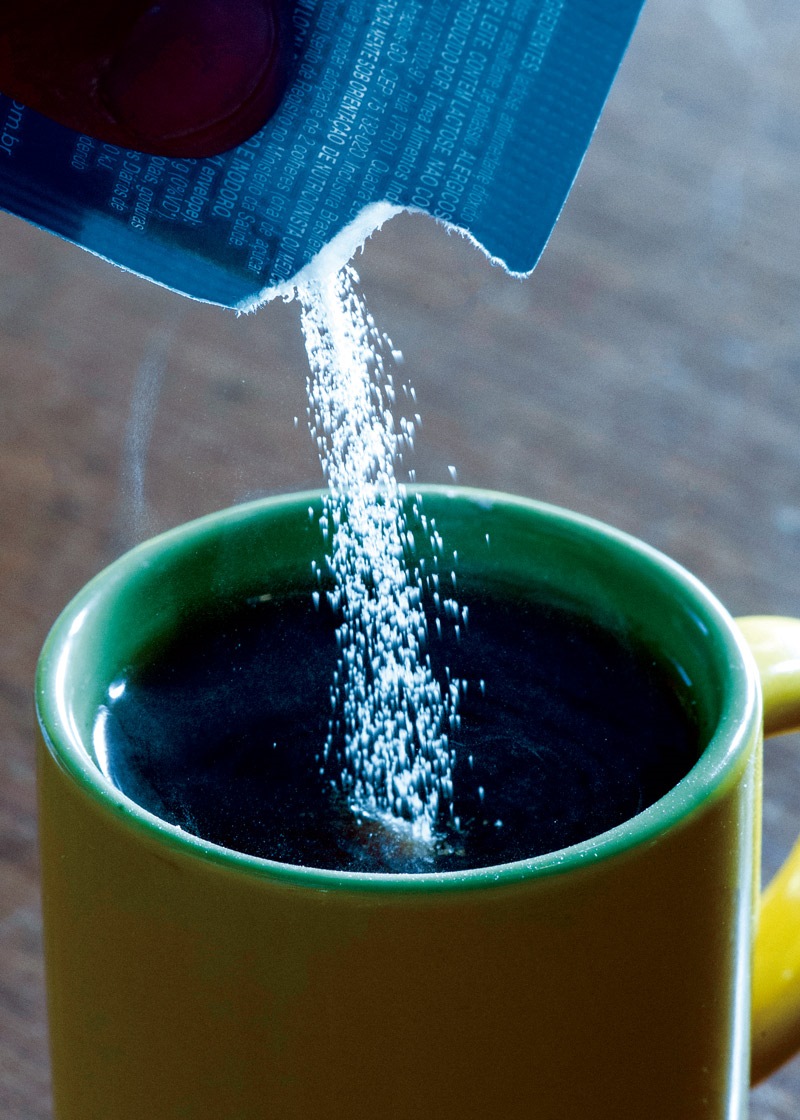
Sugar substitutes saccharin and sucralose impaired glucose uptake by cellsLéo Ramos Chaves / Revista Pesquisa FAPESP
It might be best to think twice before adding a few drops of artificial sweetener to your coffee. They may not be harmless or inert. Researchers at the Weizmann Institute of Science in Israel found that sugar substitutes can impair glucose metabolism and damage a person’s microbiome—the community of microorganisms that lives in their gut. The conclusions are the result of a study involving 120 healthy adults divided into six groups. Four were given sachets of common sweeteners—saccharin, sucralose, aspartame, or stevia—and the other two were control groups. Two weeks later, the scientists identified changes in the composition and function of the participants’ microbiomes and the small molecules that intestinal microbes secrete into the blood. The sweeteners based on saccharin and sucralose significantly altered glucose tolerance in cell receptors, making it difficult for the cells to absorb it, which could lead to metabolic diseases such as diabetes (the other two did not have the same effect). The two control groups showed no microbiome or glucose tolerance changes. Germ-free mice injected with intestinal microbes from more than 40 study participants who had taken the sweeteners also showed glucose resistance (Cell, August 19).
Republish